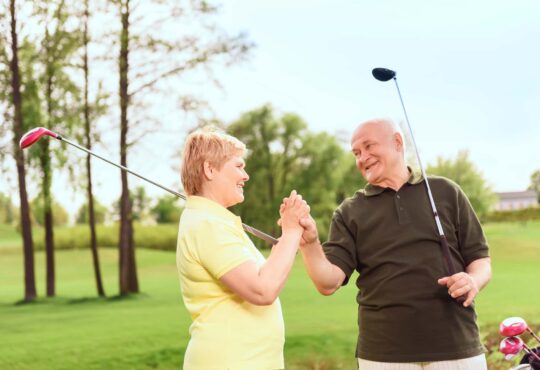
About a year ago I wrote about how crazy it was to call ANY hope “false.”
Hope is an emotion. Maybe the odds against you healing or of getting something else you want are long – but the feeling is still genuine.
When you love somebody who breaks your heart, do you want your love called “false?”
That makes no sense. Maybe the other person’s alleged love for you was false, but the love you feel is always true.
Dr. Bernie Siegel
He’s a surgeon who’s written many books about the power of the mind-body connection to help and heal people.
In his book Peace, Love and Healing, Siegel writes about doctors who are frustrated by their inability to cure some patients, and such doctors “destroy what they can’t cure.”
He added:
“The medical profession needs to accept responsibility for its role in promoting quackery by removing hope.”
He’s not afraid to discuss “forbidden” topics such as the role of the patient’s feelings and even God.
After reading his first book, one woman decided she could cure her own high blood pressure, so she stopped taking her medications. She got dizzy and injured herself in a fall. Dr. Siegel told her God gave her medications for her high blood pressure.
Way Back When Doctors Didn’t Believe Emotions Affected Your Health
Anybody who claimed that having hope . . . or relaxing . . . or thinking pleasant thoughts . . . or laughing . . . or visualizing . . .
Could affect the human body’s actual physical health . . .
. . . was laughed at by doctors and, indeed, almost everybody.
How could how you felt or what you thought to affect your body? What a ridiculous idea – only tripped-out hippies could imagine that.
Medical researchers have now studied many aspects of the mind-body connection, and we know it exists.
However, the average doctor still behaves as though it’s still 1960. The medical school still teaches them the way to cure medical problems is through surgery and medication, and . . . that’s it.
When Kelly A. Turner, the author of Radical Remission: Surviving Cancer Against All Odds, first encountered a cancer patient whose disease went into remission, she asked the doctor she was working with (she was a counselor to cancer patients) about the phenomenon.
He told her he didn’t tell other cancer patients about remission because he didn’t want to give them “false” hope.
That’s a widespread attitude among doctors.
(She just came out with a new book: Radical Hope: 10 Key Healing Factors from Exceptional Survivors of Cancer & Other Diseases. I recommend both her books, especially if you or a loved one are facing any kind of life-threatening disease.)
Given that attitude in so many doctors, it’s easy to see why many people seek out what could be charitably called “unproven” therapies. “Quackery” is what Dr. Siegel called them.
Our Bodies and Emotions are Closely Intertwined
You can feel your heart pound and your breathing speed up when you’re excited – in both good and bad ways. Sometimes when you’re scared you’ve probably felt like throwing up or emptying your bowels. That’s because you can run faster when your digestive system is empty.
Your central nervous system produces powerful biochemicals called endorphins. They weren’t even discovered until the 1970s, which partly explains why medical science discounted the effects of emotions on human physiology.
Endorphins block pain, making you feel happy. They also affect your body in other powerful ways.
They’re probably involved in the development of obesity, psychiatric problems, and diabetes.
The Vagus Nerve
At six miles, this is the longest of your cranial nerves. It connects your brain to your gut and to all the vital internal organs of your body, including your heart and lungs.
That’s why fear and stress make your heart beat faster and your lungs gasp for air. Because the vagus nerve is connected to your digestive organs, your perceptions of a person or circumstances can give you a gut feeling about them.
Belief and Expectation
When you maintain hope, you trigger physiological processes in your body that are just as real as the disease. Belief and expectation affect your nervous system.
Through the vagus nerve, endorphins, neurotransmitters, and who knows what else affects the major organs of your body.
The vagus nerve affects how much oxygen you take in, how well you digest your food, your levels of damaging inflammation, and where your circulatory system sends the most blood.
Yes, life brings problems to us all.
The traditional ills of mankind – famine, plague, and war – haven’t gone away.
And we suffer through many smaller, day-to-day stresses and irritations.
Hope keeps us going.
Plus, it makes our bodies stronger and healthier.
And it promotes greater health because hopeful people try harder. When faced with serious, even terminal, illnesses, they quit smoking, go for walks, meditate, eat more fruits and vegetables – they do everything that might help, and more.
Focus on Yourself
The odds might be against you, but you control your own reaction to life’s circumstances.
Hold on to hope – and do everything you can to get what you hope for.
https://www.cnn.com/2013/04/11/health/hope-healing-enayati/index.html
https://en.wikipedia.org/wiki/Vagus_nerve
https://www.targethealth.com/post/endorphins
https://www.wjgnet.com/2218-6220/full/v7/i2/17.htm
https://www.youtube.com/watch?v=AWq3layvR_w







